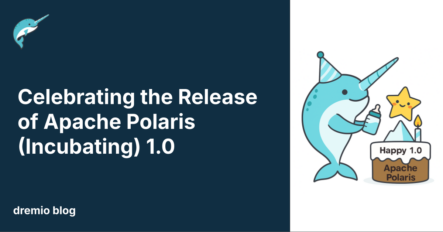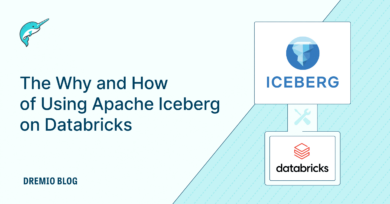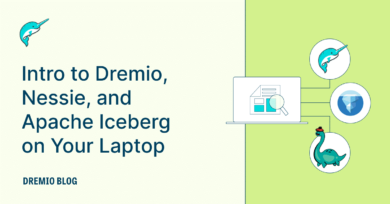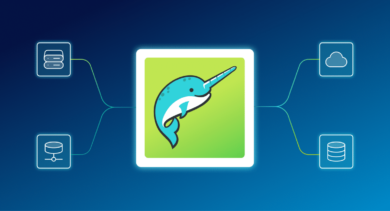14 minute read · July 9, 2025
Celebrating the Release of Apache Polaris (Incubating) 1.0
· Head of DevRel, Dremio

Apache Polaris has officially reached its 1.0 release, marking a major milestone in its journey toward becoming the industry standard for Iceberg catalog services. Designed for both self-managed and vendor-managed use cases, Polaris provides a robust, open, and extensible metadata catalog built specifically for the Iceberg table format.
This release signals more than just technical maturity. It reflects growing community momentum and the increasing need for an open, standards-driven solution in a world where data platforms must balance interoperability with governance. Polaris has evolved from a promising beta into a production-ready service, capable of handling real-world workloads at scale.
What began as a collaboration between Dremio and Snowflake is now a fully open and incubating Apache Software Foundation project, developed in the open and supported by a wide range of contributors. The 1.0 release cements Polaris’s role as a foundational component in the modern data lakehouse stack.
What’s New in Polaris 1.0
The 1.0 release of Apache Polaris introduces a rich set of capabilities that transform it from a promising catalog service into a production-grade metadata authority for Iceberg and beyond. Each enhancement is designed to improve performance, interoperability, and operational flexibility.
Binary Distributions
For the first time, Polaris is available as a single packaged artifact in both .tgz and .zip formats. This simplifies setup by allowing users to download and deploy Polaris quickly without building from source. Combined with the new Helm chart, deployment on Kubernetes clusters becomes seamless and reproducible.
Official Helm Chart
Polaris 1.0 debuts an official Helm chart, making it straightforward to install and manage Polaris in Kubernetes environments. This marks a step toward cloud-native readiness and allows for rapid provisioning and scaling in enterprise infrastructure.
Policy Store with Schema Evolution and TMS Integration
Polaris now includes a Policy Store that supports schema evolution and integrates with Table Maintenance Services (TMS). This makes it possible to define and persist policies like snapshot expiration and compaction, enabling automated governance rules to be enforced directly within the catalog.
JDBC Support with Postgres
The catalog backend now supports persistence via JDBC, with Postgres as the first supported engine. This enhancement provides a robust and transactional store for Polaris metadata, enabling high concurrency and familiar operational workflows for enterprise teams.
Compaction-Aware Rollbacks
Polaris is now smarter about prioritizing critical write operations over background processes. If a compaction commit would cause a conflict, Polaris can now roll back that compaction automatically, giving precedence to writers performing user-initiated data modifications. This approach reduces friction and helps maintain high write throughput in busy environments.
Quarkus-Based Runtime
The Polaris server and its admin tool now run on Quarkus, a modern Java framework optimized for fast startup times and container efficiency. This change enables Polaris to start rapidly, integrate easily with OIDC for authentication, and offer improved Kubernetes-native behavior out of the box.
ETag-Based HTTP Caching
The loadTable endpoint now supports HTTP caching through ETags. This reduces redundant data transfers and helps clients avoid unnecessary metadata loads, which in turn improves responsiveness and reduces bandwidth consumption.
Flexible Identity Provider Integration
Polaris now supports a range of identity configurations. It can operate as a standalone identity provider or delegate authentication to an external system. This flexibility allows organizations to align Polaris access control with existing identity and access management (IAM) systems.
Snapshot Filtering for Clients
Clients using Polaris can now choose to load only the snapshots they need, rather than retrieving the full table history. This feature improves efficiency and reduces memory overhead for clients managing large or frequently updated datasets.
Catalog Federation (Experimental)
An experimental feature introduces the ability to federate Polaris requests to external Iceberg catalogs, such as Hadoop or REST-based implementations. This opens the door to multi-catalog environments where Polaris acts as a unified access layer.
Generic Table Format Support (Experimental)
Polaris is expanding beyond Iceberg. With initial support in Spark 3.5, Polaris can now manage Delta Lake tables through its Generic Tables interface. This experimental capability previews Polaris’s potential to evolve into a universal catalog for multiple table formats.
Event Listener Framework (Experimental)
A new event-driven framework allows subscribers to listen for catalog events such as table or view commits. This lays the groundwork for extensibility, such as triggering audit logs, lineage tracking, or automated workflows based on catalog activity.
Bug Fixes and Stability Improvements
Polaris 1.0 also delivers critical improvements to the CLI and Python clients, safer configuration handling, optimized table operations that reduce object store calls, and a memory-aware entity cache that prevents overuse in large deployments. Bootstrapping a new deployment has also been streamlined, including support for user-supplied or auto-generated root credentials.
Breaking Changes to Note
As part of the move to Quarkus, Polaris introduces changes to both its server configuration format and bootstrap process. Users upgrading from 0.9 should review these changes carefully, although backward compatibility is maintained for many legacy configuration keys to support smooth transitions.
Together, these changes reflect a project maturing in both capability and scope—preparing Polaris to meet the demands of modern, scalable data platforms.
Building a Community-Driven Ecosystem
With the 1.0 release, Apache Polaris enters a new chapter—not just as a technology milestone, but as a signal of its long-term commitment to open, community-led development. As an incubating project under the Apache Software Foundation, Polaris is governed by meritocratic principles that invite wide participation, foster transparency, and prioritize interoperability over lock-in.
One of the most promising aspects of Polaris is the growing ecosystem of vendors and tools beginning to adopt and integrate with it. Polaris was co-created by Dremio and Snowflake, and both have committed to supporting the project in meaningful ways. Dremio offers native Polaris integration through its Enterprise Catalog, and Snowflake has announced support via its Open Catalog initiative. These are two significant proof points that Polaris is ready for real-world adoption by major platform vendors.
But the ecosystem does not stop there. Several other commercial players in the streaming, storage, and metadata management spaces are actively exploring Polaris integrations. This momentum matters. A broad, diverse ecosystem increases the resilience and reach of any open standard. By contrast, metadata catalogs tied to a single vendor or limited to one deployment model often struggle to achieve long-term traction.
Polaris’s support for both REST and JDBC persistence, combined with flexible identity management, event hooks, and its expanding table format support, make it a compelling choice for anyone looking to future-proof their data architecture. Whether you're building on Kubernetes, integrating with Spark, or exploring multi-catalog federation, Polaris offers the primitives necessary to support sophisticated, interoperable lakehouse environments.
This diversity of use cases and contributors is what positions Polaris not merely as another option, but as the likely successor to fragmented metadata systems that have long limited the potential of open data architectures. As more organizations adopt Iceberg for its table format advantages, Polaris is emerging as the logical choice to anchor those tables in a consistent and open catalog.
Why Polaris 1.0 Matters
The release of Polaris 1.0 is more than just a version bump — it’s a signal that the modern data ecosystem is shifting toward open, federated, and scalable metadata management. Polaris addresses a longstanding gap in the data lakehouse stack: a neutral, standards-based catalog that’s both vendor-agnostic and production-ready.
Until now, organizations adopting Apache Iceberg often faced difficult trade-offs between tightly coupled proprietary catalogs or simplistic self-managed options that lacked enterprise-grade features. Polaris breaks that stalemate by offering a solution that’s deeply integrated with open standards while delivering advanced capabilities like schema evolution tracking, built-in policy management, external IdP support, and Kubernetes-native deployment.
Polaris also reflects a growing understanding that metadata is not just a back-end concern, but a foundational element of how data is governed, shared, and accelerated across organizations. Features like event listeners, federated catalogs, and generic table support point toward a future where Polaris becomes the central layer for managing all your data’s structure and lineage — not just Iceberg metadata, but Delta Lake and more.
Moreover, Polaris does this without locking users into any single execution engine or cloud provider. Its REST and JDBC APIs allow it to serve a wide variety of data platforms, whether you’re building analytics on Spark, running pipelines in Flink, or federating queries with Dremio. That interoperability is crucial in an era where hybrid and multi-cloud architectures are becoming the norm.
As the catalog landscape evolves, Polaris is clearly positioning itself to be the de facto standard — not just because of its technical features, but because of the community and ecosystem rallying behind it. The 1.0 release marks a moment of readiness, signaling to teams across the industry that Polaris is ready to anchor the next generation of lakehouse metadata systems.
Get Involved and Explore More
Now is the perfect time to get hands-on with Polaris and become part of its growing ecosystem. Whether you’re an engineer deploying catalogs in production, a contributor looking to shape the future of open metadata, or simply someone evaluating options for Iceberg table management, Polaris offers accessible ways to get started.
To begin, you can download the official 1.0 release artifacts, including packaged binaries and Helm charts, from the Apache Polaris website. The simplified deployment options make it easy to run Polaris locally or in the cloud, whether you’re experimenting or deploying at scale.
For a deeper understanding of how Polaris works and how to integrate it into your stack, make sure to download a free copy of Apache Polaris: The Definitive Guide. This comprehensive resource walks through key concepts, architecture, and use cases, helping teams get the most value from Polaris in their data platforms.
If you’re interested in contributing, Polaris welcomes participation from across the open-source community. Whether through documentation, code, issue triage, or feature discussion, the project thrives on community input. As an incubating Apache project, Polaris is governed openly and transparently — and the door is open for more contributors and adopters to help shape its future.
You’ll also find Polaris featured in many commercial products and vendor roadmaps, from Dremio’s Enterprise Catalog to Snowflake’s Open Catalog. Keep an eye on updates from other vendors in the streaming, storage, and governance spaces as more announce support in the months ahead.
To explore further:
- Visit the official Polaris website
- Get hands-on with Polaris on your laptop
- Download Apache Polaris: The Definitive Guide
- Discover Apache Iceberg and Apache Polaris Events
- Join the community mailing lists and Slack channels
- Review the GitHub repository to file issues, submit pull requests, or watch for upcoming changes
Polaris is ready — now it’s your turn to explore what’s possible.
Conclusion: A New Era for Open Lakehouse Metadata
With the release of Apache Polaris 1.0, the data ecosystem takes a meaningful step forward in establishing a truly open, interoperable, and production-ready metadata catalog for Apache Iceberg. Polaris brings together the reliability enterprises expect with the openness developers and data teams need to innovate freely.
From its co-creation by Snowflake and Dremio to its current trajectory as an incubating Apache project, Polaris has been built to serve as a neutral foundation for managing Iceberg tables across platforms, clouds, and tools. The 1.0 release showcases this vision in action — with first-class features, a cloud-native architecture, and a community model designed to grow with the industry.
As more organizations embrace Polaris through native integrations and direct deployments, its role as the metadata layer for the open lakehouse becomes clearer. With its support for policy automation, multiple table formats, federation, and event-driven extensibility, Polaris is poised not only to meet the needs of today’s data platforms but to lead them into tomorrow.
It’s an exciting moment to watch Polaris gain traction across vendors and users alike. To understand what makes Polaris unique and how to use it effectively, download your free copy of Apache Polaris: The Definitive Guide and start exploring. You’ll find helpful links to the release, documentation, and community resources below.
The future of Iceberg metadata is open, and with Polaris 1.0, that future is officially underway.
Sign up for AI Ready Data content


